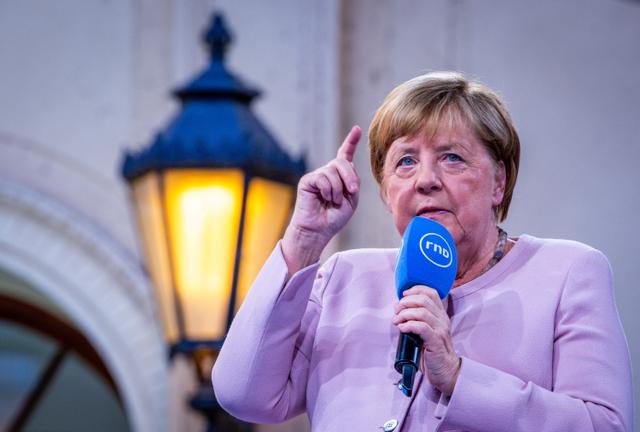Germany trained Russian troops and pushed military exports to Moscow right up until the 2014 annexation of Crimea, Der Spiegel reports. The revelations shed light on how deep the military cooperation between Berlin and Moscow had grown under Chancellor Angela Merkel.
Germany’s war games center became a model for Russia
In the 1990s, after the Red Army withdrew from Germany, Berlin built a high-tech training facility on the Altmark military base in Saxony-Anhalt. This center, operated by Rheinmetall, featured simulated battles using laser systems, digital tracking of casualties, and a software-run duel simulator. The Bundeswehr called it Europe’s most advanced training facility.
The broader plan envisioned eight such centers across all Russian military districts. Germany was to supply not just lasers and sensors, but pyrotechnics to simulate explosions.
Merkel government backed deep military cooperation
Military integration between Germany and Russia intensified from 2009 to 2013. This included plans for a German liaison officer to be stationed inside Russia’s General Staff and a Russian officer to take a post in Germany’s Army Command in Strausberg.
The selected Russian officer completed a German language course and was awaiting General Staff training. His start date was set for 1 October 2014. Plans also included access to internal documents, strategic discussions, and formalized exchanges at the command level — steps usually reserved for NATO allies.
Canceled war games near NATO’s borders
Germany and Russia planned a joint drill in July–August 2013 at Kamenka, near Finland. Sixty German troops and six Boxer vehicles were scheduled to join. The exercise sparked backlash from NATO members. A Baltic officer compared it to the Hitler-Stalin Pact.
Moscow announced the drill in harsh language, saying it aimed to “destroy armed gangs.” Berlin canceled it, citing the language and rising tensions. The exercise was never rescheduled.
Fallout after Russia annexed Ukraine's Crimea
On 10 June 2014—months after Russia announced the annexation of Crimea, Germany revoked all military export licenses. Rheinmetall fought the ban, arguing the equipment was ready and not a weapon. The company threatened to sue for €120 million. Courts rejected the claims, and Rheinmetall quietly dropped the case in 2016.
The gear, including 300 laser modules for rifles, was stored in Bremerhaven. After 2022, Rheinmetall considered sending it to Ukraine, but it was found rusted and useless.
Officials now express relief the partnership ended in 2014. Niebecker told Spiegel: “God be thanked it didn’t happen.” He feared Russia might have gained a military edge.




